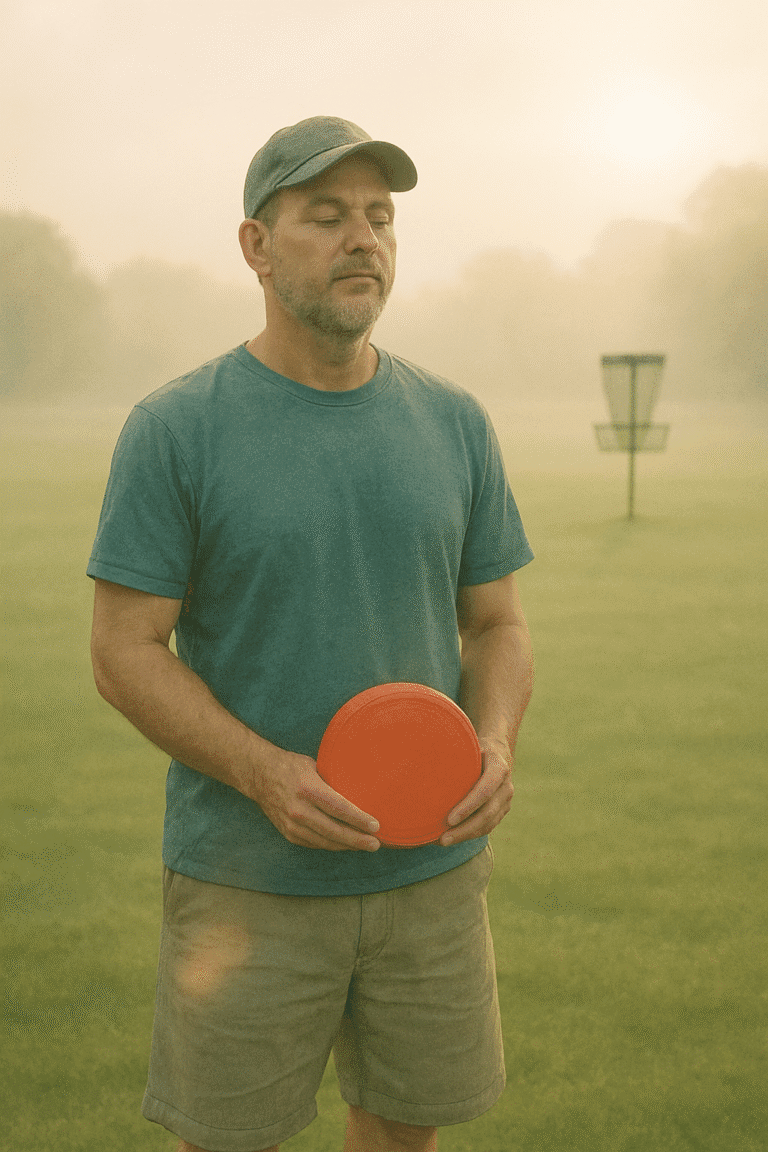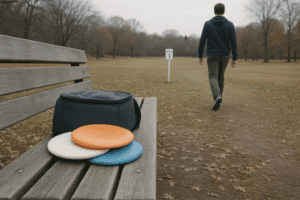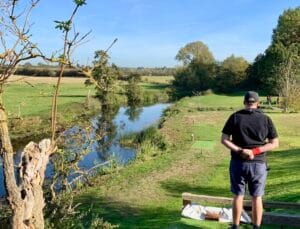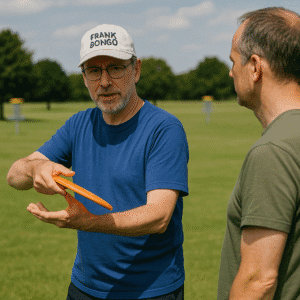Struggling to keep your cool after a missed putt? Feel like your own brain is sneakily working for the other team? You’re not alone. The real opponent in disc golf often isn’t the course—it’s the chatter in your head. This post outlines mental strategies for disc golf that genuinely help you keep your head while everyone else is losing theirs.
Mental Strategies for Disc Golf That Sharpen Decision-Making
Step onto the disc golf course and you’re not just facing par—you’re facing yourself. The terrain doesn’t rattle you, but your thoughts might. This is where smart mental strategies for disc golf give you the edge. No fluff, no forced calm—just real tactics that sharpen your thinking and decision-making when it counts.
Mental Preparedness Sets the Tone for Every Throw
Every throw begins before your hand touches the disc. Mental preparedness isn’t woo-woo; it’s your pre-game playlist. If your head’s in the right place, the rest tends to follow.
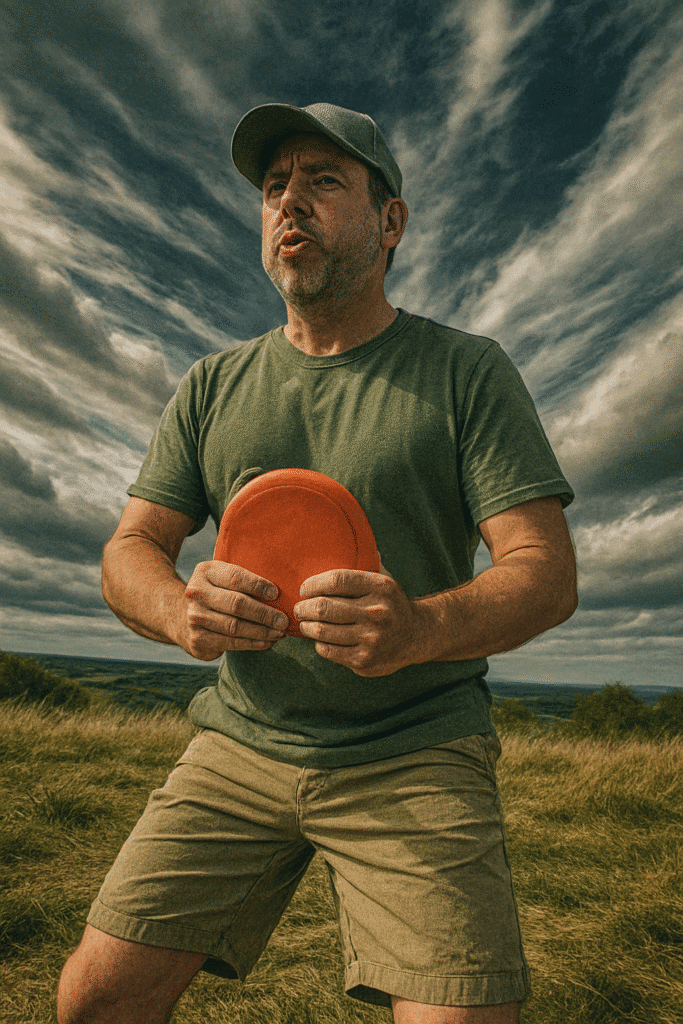
Physical Health Sharpens the Mental Edge
Your brain isn’t a separate entity—it rides shotgun in the same body you use to throw. Eat junk, sleep badly, skip movement, and your focus gets foggy. Want a better mental game? Start with your body.
Patience as a Mental Strategy for Disc Golf Success
In disc golf, impatience is expensive. Missed lines, rushed putts, poor judgment. Patience isn’t passive—it’s tactical. It gives your brain time to override the “just send it” impulse and make smarter choices. It’s not zen—it’s strategy.
Visualisation Sharpens Accuracy
Don’t obsess over the trees—your disc will find them. Instead, picture your perfect throw. Mental rehearsal isn’t just wishful thinking; it’s training.
Confidence Grows from Mental Reps and Small Wins
Confidence doesn’t arrive fully formed—it trickles in with every made putt, every smart lay-up, every bad round survived. The best mental strategies for disc golf don’t chase perfection—they normalise mistakes and reward process.
Confidence Is a Byproduct of Reps
Confidence doesn’t arrive by courier—it shows up after you’ve thrown a thousand discs and stopped overthinking every wobble. Repetition builds familiarity, familiarity breeds confidence.
Reframing Mistakes as Mental Wins in Disc Golf
That mistake you made? It’s not a failure—it’s a bookmark. Flip to it, reread it, and remember the lesson. Smart players reframe frustration. It’s one of the sneakiest but strongest mental strategies for disc golf.
Mistakes Are Mental Reps in Disguise
Every botched throw is just a rep for your mental resilience. Instead of sulking, get curious. What went wrong? What would you do differently next time? Ask better questions, get better results.
Using Competition to Pressure-Test Your Focus
Playing with someone slightly better than you is like training with ankle weights. It tightens your focus and kicks your competitive instincts into gear. Friendly pressure builds the kind of mental agility you can’t fake.
But competition isn’t the only teacher. Sometimes the real growth comes from slowing down. Playing Disc Golf with Beginners forces you to simplify your decisions, explain your thinking, and reflect on your habits. It’s like narrating your own strategy out loud — suddenly, your choices become clearer, and your discipline sharper.
Practising Pressure Like a Pro
Golfers talk about “Sunday pressure”—the unique stress of leading a tournament on the final day. In disc golf, pressure creeps in when you realise the difference between glory and a bogey is one wobble of your wrist. But here’s the thing: pressure isn’t the problem. It’s how unfamiliar it feels.
Train with it. Set up consequences in your casual rounds. Miss this putt, and you owe your group a drink. Miss two in a row, start over. Add some spice to your solo rounds—play only your worst shot, or impose a one-disc-only rule to simulate decision-making stress.
Why does this work? Because your brain is lazy. It loves autopilot. Add pressure, and it has to wake up. That discomfort becomes an asset in real events. You’re not just practising shots; you’re training your response to stress.
The best part? This isn’t theoretical. It’s neuroscience. Your brain forms stronger connections under stress—what scientists call “emotional arousal.” It’s why your biggest fails stick with you. So use that to your advantage. Make practice emotionally charged. Miss with consequence. Succeed with celebration.
The goal isn’t to eliminate nerves. The goal is to get familiar with them, so they don’t derail you when it counts.
Competition Without Ego Builds Focus
When you’re the worst player in a group, your brain kicks into gear. Friendly competition, especially against someone just better than you, turns up the heat without burning you out.
Mastering the Mental Game: Your Path to Disc Golf Excellence
As we conclude this exploration, remember that these strategies aren’t just theoretical concepts; they’re tools you can wield on the course. Recent data reveals that over 70% of disc golfers have experienced improved scores after prioritizing their mental game. This highlights the tangible impact of mastering the mental aspect of disc golf.
Why Mental Strategies for Disc Golf Are Often the Missing Link
Bobby Jones said golf is played on the five-and-a-half inches between your ears. Disc golf is no different. Most missed putts start in the mind. So stop polishing your swing for a second, and polish your thinking instead. These mental strategies for disc golf? They’re often what separate the pros from the players.
So, as you stand on the tee pad, surveying the challenges ahead, remember that you’re not just launching discs; you’re harnessing the force of your mind. Let these strategies become ingrained in your approach to the game. As your mental game flourishes, so will your throws. Each throw becomes a chance not only to conquer the course but also to conquer yourself. Your journey towards disc golf excellence commences from within. Are you prepared to wield your mental edge?
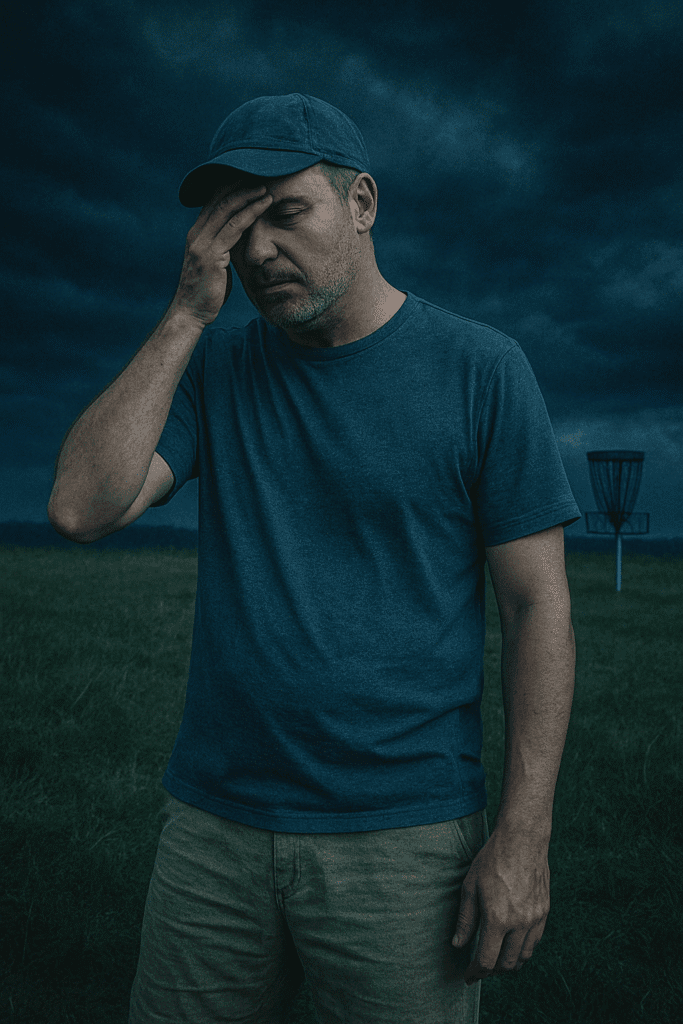
Your Questions Mental Strategies For Disc Golf
The most effective include pre-shot routines, visualisation, positive self-talk, and practising under pressure to build resilience.
Train your brain with pressure-based drills and routines. Familiarity reduces panic, and breathing techniques help too.
Yes. Poor sleep, bad diet, and low energy directly affect your focus and decision-making on the course.
Absolutely. Mental strategies often separate casual players from top performers, especially in close matches.
Practice with purpose. Repetition, mixed with intentional self-feedback and accountability, builds unshakable belief in your skills.

